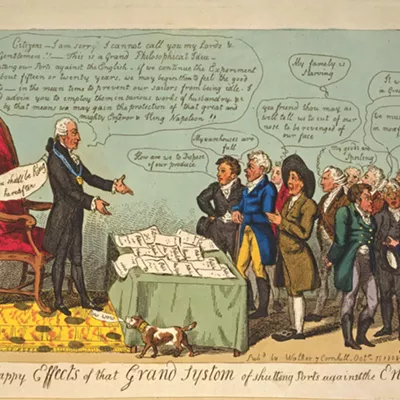We love the wealthy in America. Oh, sure, occasionally some politicians or activists rail against the one percent — and it's pretty easy to find billionaires and mere millionaires whining about class warfare. But our public policy, media and culture all tell a different tale.
In modern history, we've never taxed wealth less or had more vehicles to shelter wealth from taxes altogether. With Citizens United, we've freed the wealthy to spend unlimitedly to influence elections and, through other legal entities, shape public policy.
This combination of low taxation, electoral power and legislative influence all reinforce each other. This creates a political sphere where, despite each person having one vote, the wealthy wield disproportionate clout — including over whether people are actually able to wield their one vote in practice.
TV shows, podcasts and music are all filled with celebrations of wealth. From the now nearly ancient MTV Cribs to Donald Trump's Apprentice to the lyrics coming from the latest hit on the radio, it's suggested that wealth is the ultimate accomplishment. Even when our media mocks the wealthy, it also celebrates them. From Billions, Silicon Valley, and Succession, we mock but also celebrate the wealthy.
This admiration for the wealthy is hardly just an American phenomenon. However, our nation's puritan founders did put a unique spin on it, suggesting both that anyone might become wealthy and that wealth was a sign of godliness.
But here's the thing: The best way to predict whether someone will be incredibly wealthy is if their parents were. It's a fact that is difficult to reconcile with our celebration and reverence for the wealthy. Merely being lucky enough to be born into the right situation hardly seems like a reason for disproportionate power and respect.
But, of course, there are those rare people who build fortunes rather than inherit them — although often these fortunes rest more in luck than skill.
That said, I believe just as the wealthy should not be automatically admired, they also shouldn't necessarily be scorned. There are a number of real accomplishments a person can achieve. Some come with wealth and some don't.
Building a successful business that reshapes the world or even improves a neighborhood is an accomplishment. Releasing a popular album, selling out an arena or winning an Olympic medal are all accomplishments. So are raising a thoughtful and kind child, graduating from high school, passing a bill that improves people's lives, or founding a nonprofit that successfully reduces homelessness.
My point is that we would be better served as a society if we stopped making money such a primary indicator for measuring success. It's not a particularly accurate one and it screws up who we think is worth listening to and who we believe we can safely ignore.
This starts by requiring the wealthy to loosen their grip on their, to put it bluntly, wealth. Yes, in the simplest terms, this means a higher rate of taxation, where decisions about our communities' and nation's future are truly democratized. But it also means to stop celebrating the accumulation of money and stuff, and to start celebrating actual accomplishments.
In this new world, business leaders could still be seen as icons, but they would be judged more by the impact they have on others rather than their ability to effectively hoard resources. We should start to look skeptically at large net worths and instead consider impact.
For this recalibration to be effective, it would mean reconsidering how we judge public corporations and understand their purposes. As recently suggested by leading CEOs themselves through the Business Roundtable, we must look beyond just shareholder value (i.e., wealth creation) to the actual public impact.
This won't be an easy journey, but this reassessment of what to value is the only way we will build a world based on our values. ♦
John T. Reuter, a former Sandpoint City Councilman, has been active in protecting the environment, expanding LGBT rights and Idaho's Republican Party politics.


















